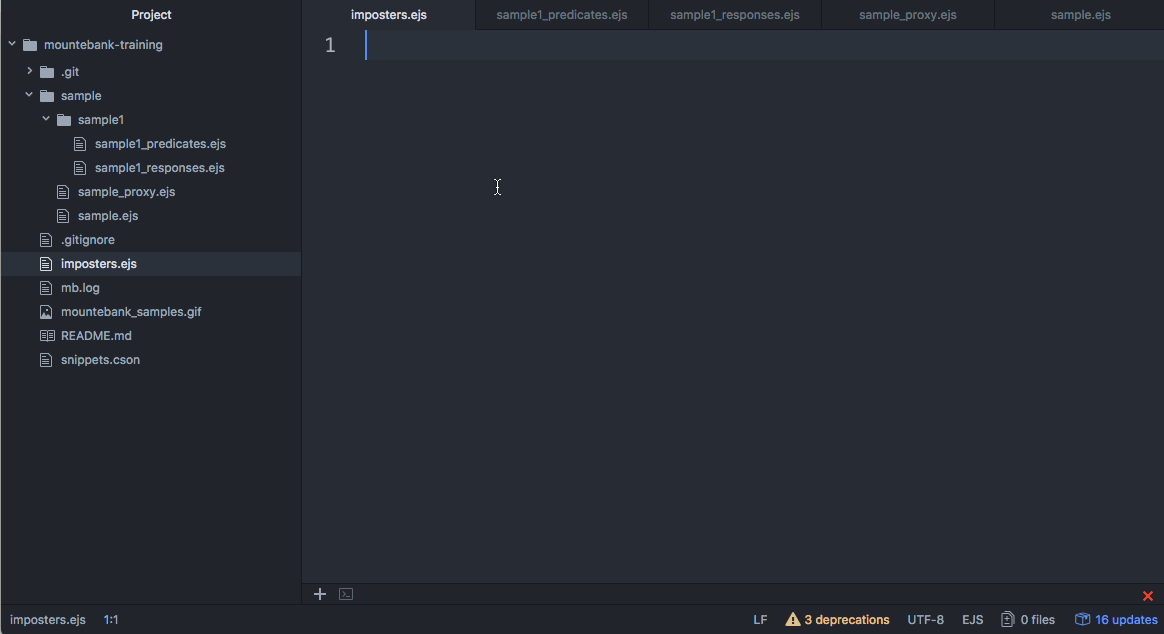Example configuration files for Mountebank
Mountebank is the first open source tool to provide cross-platform, multi-protocol test double over the wire. Simply point your application under test to mountebank instead of the real dependency, and test like you would with traditional stubs and mocks.
cmd$ npm install -g mountebank@latest
You can load your configuration files to Mountebank with an option --configfile It supports a set of complex configurations for multiple imposters using EJS templates, which allow you to put contents into separate files and use an EJS include directive to merge the contents into one file.
Personally, I recommend you to use Atom as an editor for EJS files. I also created Atom snippets for Mountebank which can help you to create your configuration files easier. You can copy the snippets.cson file into ~/.atom/ (You'll see an example usage below) Make sure that you've installed the language-ejs plugin into your Atom app.
cmd$ mb --configfile imposters.ejs --allowInjection
Just copy the snippets.cson file into ~/.atom/ directory, then restart Atom.
cmd$ cp snippets.cson ~/.atom/
When you want to use snippets, just type the prefix text then press tab to enable it.
| Prefix | Description | Example |
|---|---|---|
| imps | create imposters | { "imposters": [] } |
| imp | create imposter | { "port": 1234, "protocol": "http", ... } |
| incl | include directive | <% include path/to/file.ejs %> |
| strfy | stringify directive | <%- stringify(filename, 'path/to/file.ejs') %> |
| stub | create single stub pair | { "predicates": [], "responses": [] } |
| pred | create predicates | { "equals": { "method": "POST", ... } } |
| resp | create responses | { "is": { "statusCode": 200, ... } } |
| def_res | default responses | { "responses": [] } |
| behav | set response behavior | { "_behaviors": { "wait": 5000, ... } } |
| proxy | set response proxy | { "proxy": { "to": "http://origin.com", ... } } |
| resp_inj | set response injection | function(request, state, logger) { ... } |
| pred_inj | set predicates injection | function(request, logger) { ... } |
